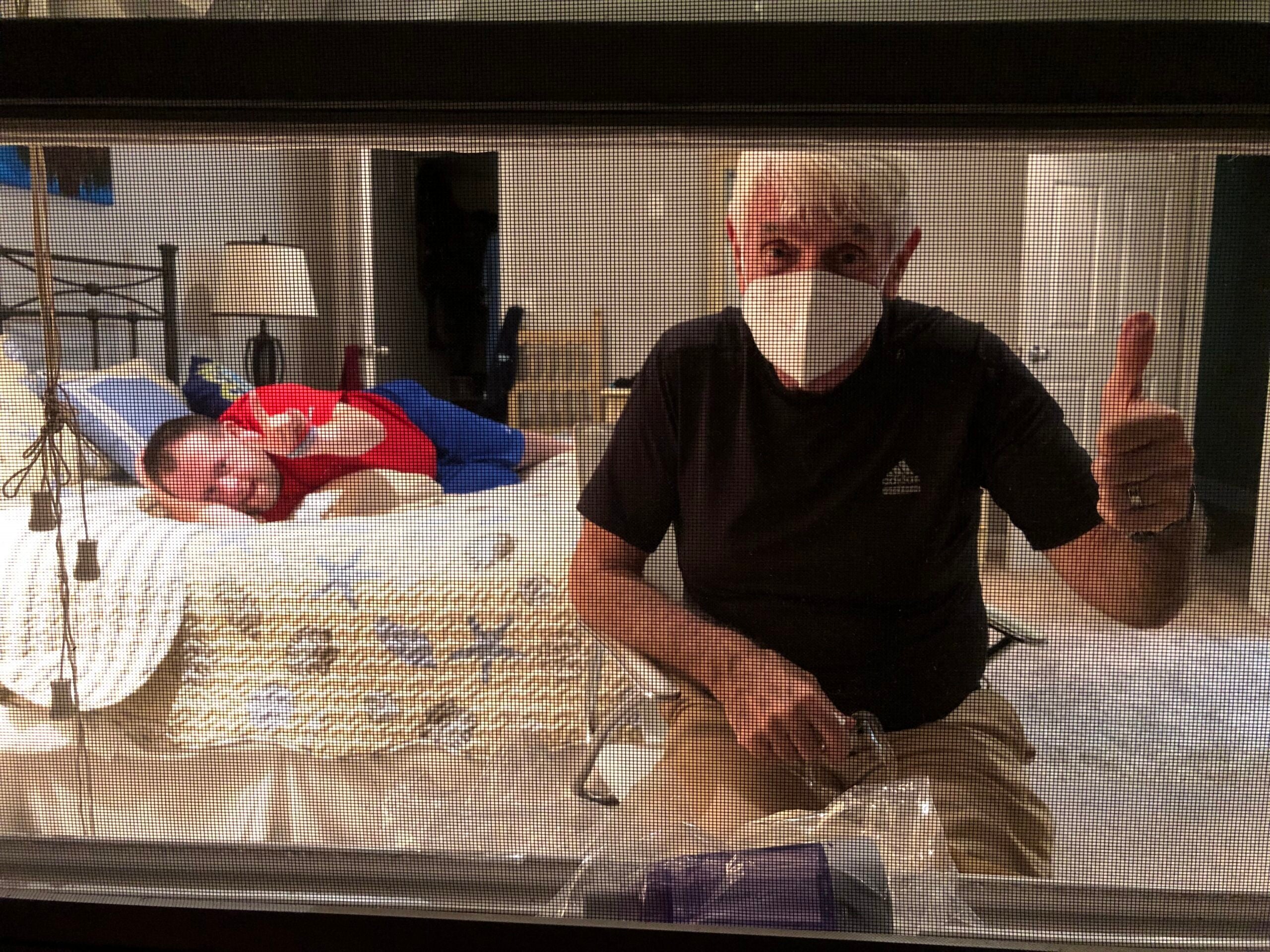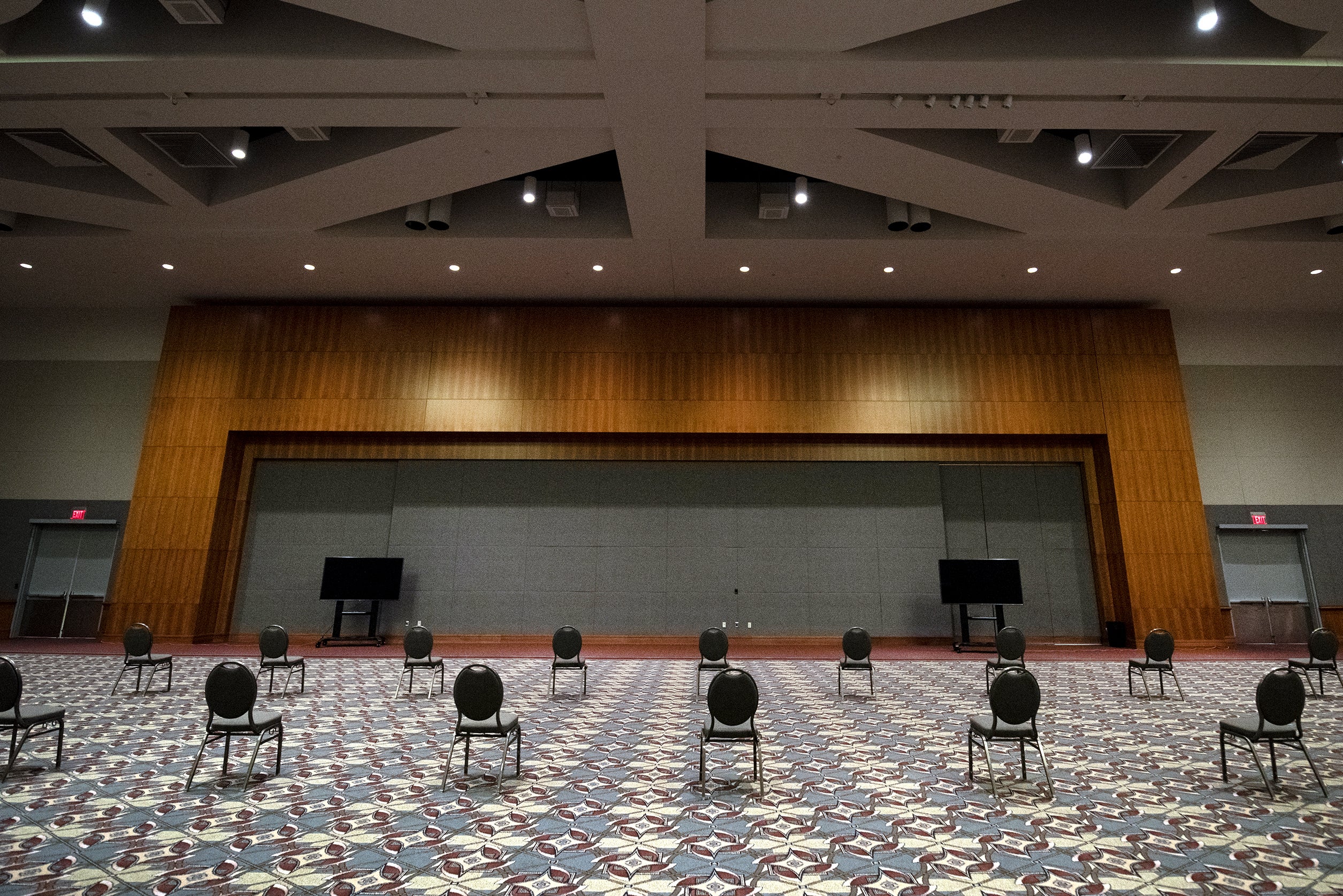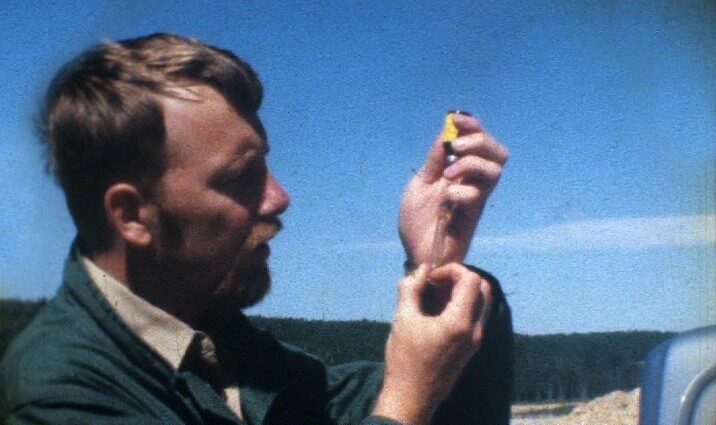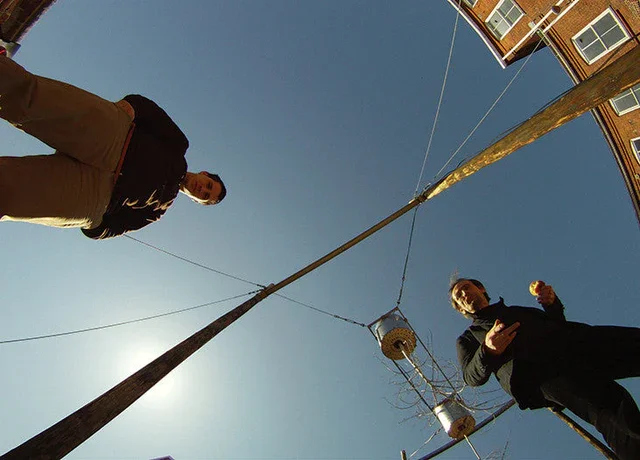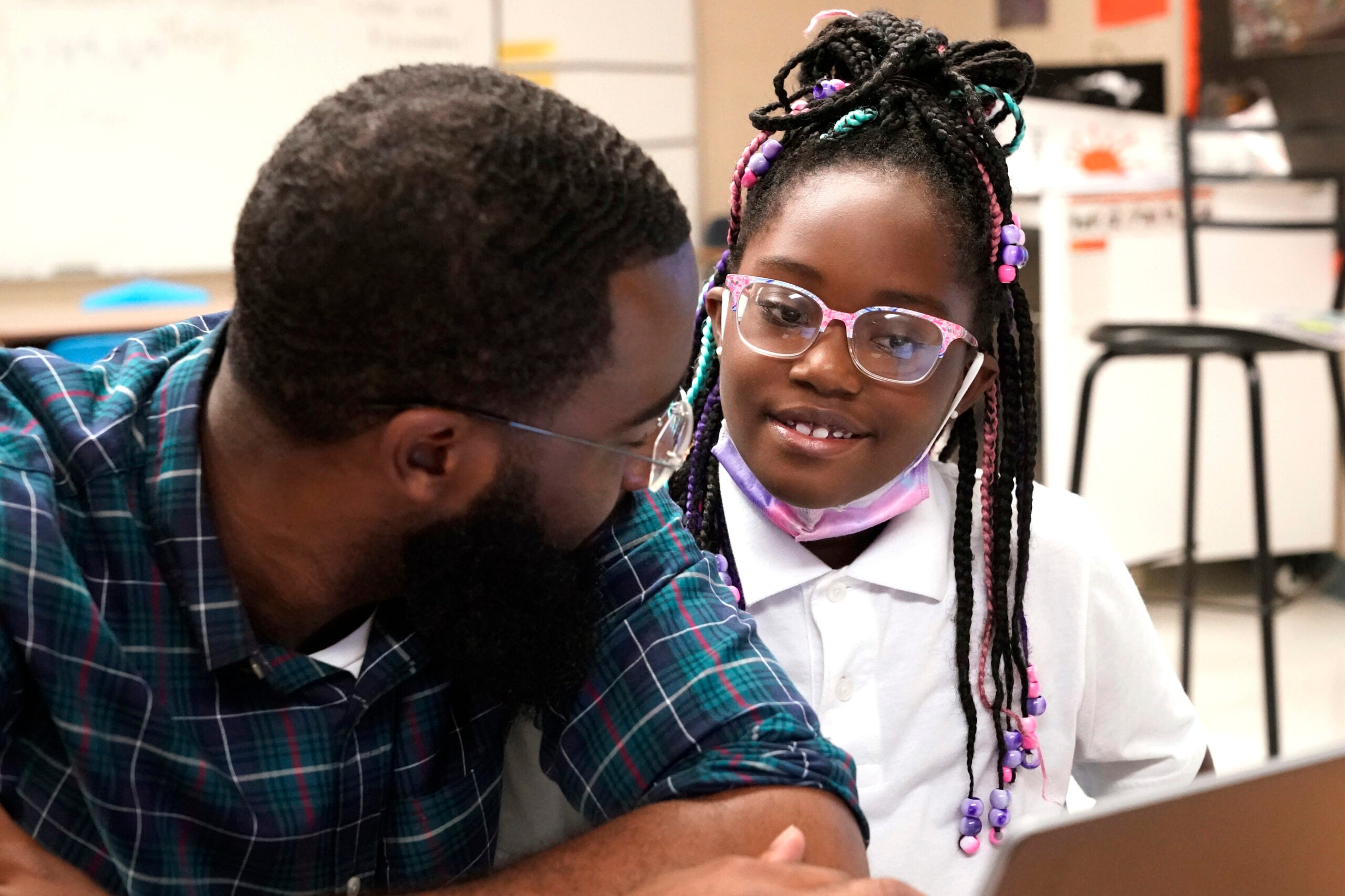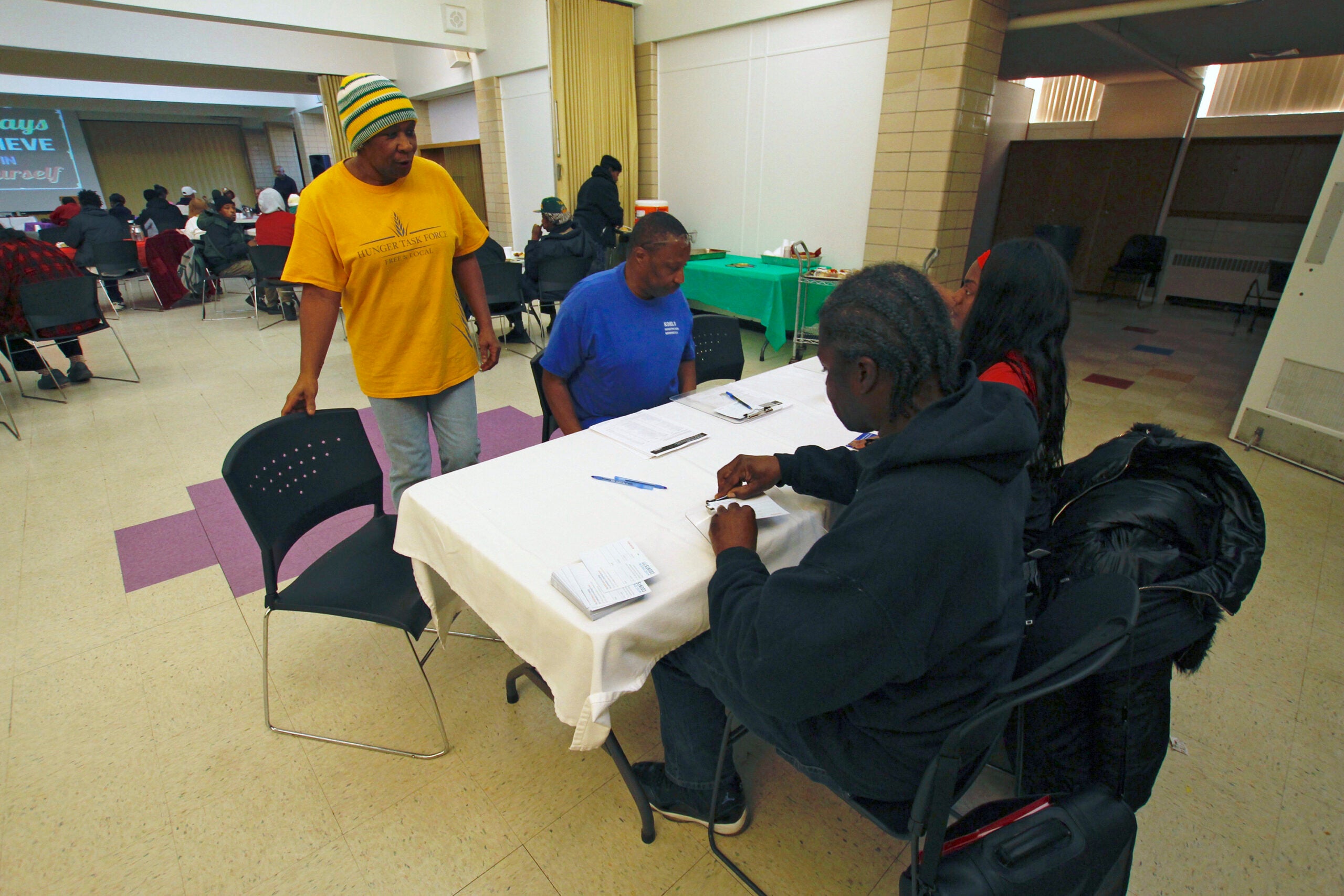Christena Gunther still gets emotional when she thinks about her family’s fight with COVID-19.
The 37-year-old who lives in Chicago became the caregiver for her mom, dad and brother when they all got sick with the disease in the summer of 2021. All three were unvaccinated. Her family lives in Plymouth, although they were in Florida when they became ill.
Listen to Christena Gunther
Stay informed on the latest news
Sign up for WPR’s email newsletter.
When they were sick, I was talking to them through a screen window, and watching through that window the suffering they were going through was so, so hard.
It’s hard to describe without crying because it was very surreal. In some ways, the days were very similar because I had a little route of what I would have to do: go to Walgreens and get prescriptions, go and check on them. But at the same time, I was grappling with the potential that all three of my family members would die.
My brother has Down syndrome and has a disability. And there’s also an added concern for adults with cognitive or developmental disabilities, if they can go to the hospital or the emergency room with a caregiver. That whole piece was immensely difficult for all three of us to go through, and I think delayed care in some cases.
My dad and brother were vaccinated pretty quickly after their experience. My mom was advised to wait because of how seriously ill she was. They were concerned she couldn’t handle the vaccine for a while, so she was actually vaccinated with her first dose on Jan. 3.
‘This is a once-in-a-career thing’
Julia Peek, 61, Madison
Peek is a respiratory care manager at a hospital in Madison. She plans to retire in May, earlier than expected. The pandemic was a major factor in that decision.
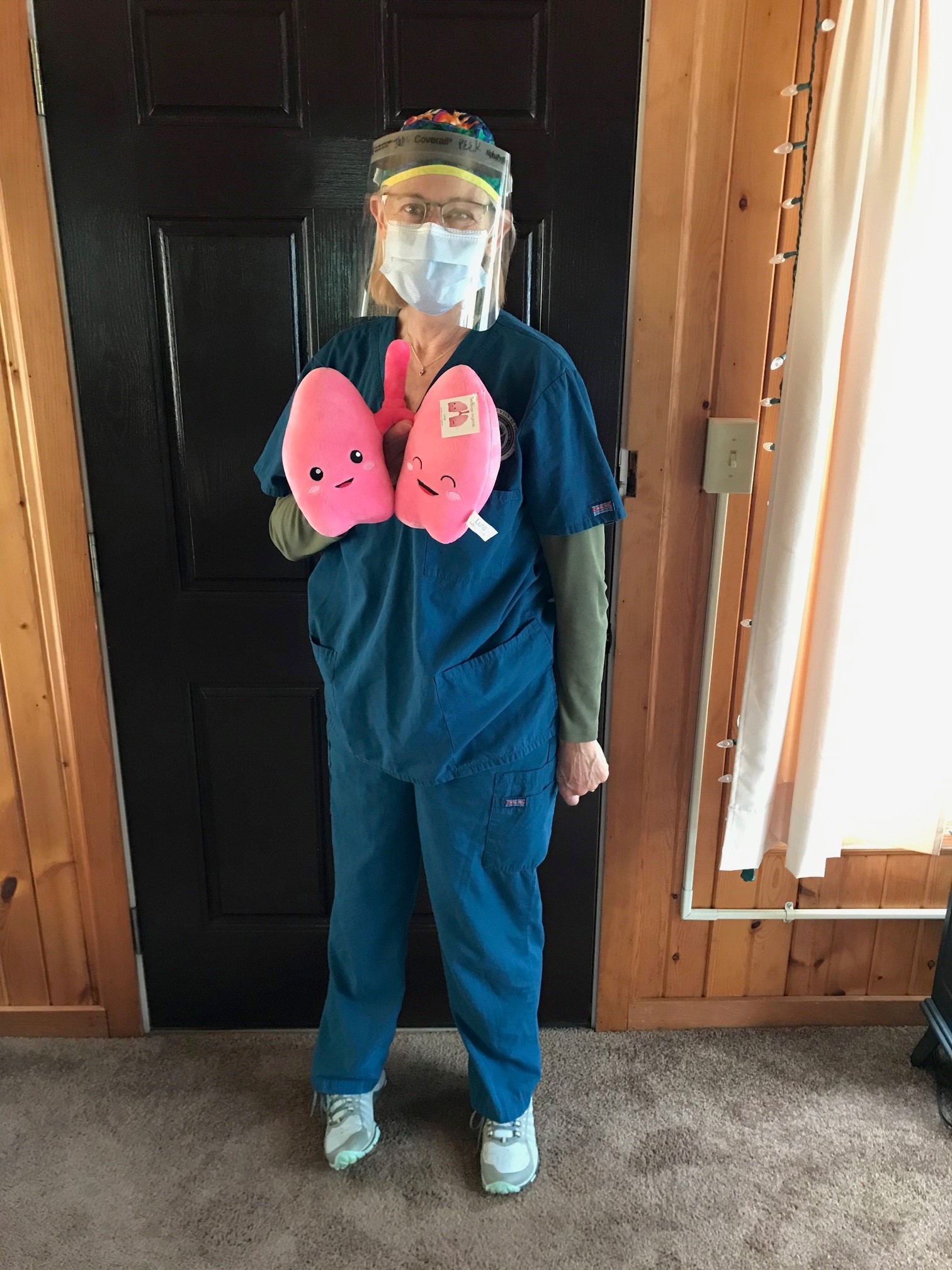
Listen to Julia Peek
This is a once-in-a-career thing. We’ve had different diseases come up and had to deal with it in different ways, but I’ve never seen anything so long-lasting and widespread.
The biggest issue is trying to cover our shifts and making sure we have enough people, which means everyone’s working overtime. We always have coverage, but you get real creative. How do you split up shifts? Can you stay two hours late? Can you come in early? You do a lot of that.
This is not unique to where I’m at work. This is the same as every other hospital. Same with nursing, pharmacists, lab, radiology — doesn’t matter the department. It’s just across the board, nationwide.
More people do end up dying from it, and we’re used to not having that happen. We’re good at making people better. And yeah, people get better. Some don’t. And that makes it a little harder.
You are in there with the nurse and helping these people through: holding their hands; talking to them the whole time going, ‘It’s OK.’ And to do that day in and day out … It’s hard.
‘We just feel like we can’t win’
Julie Welch, 55, West Salem
Welch teaches six grade in the La Crosse School District. She said the problems with the public education system and the pressures of the pandemic have pushed her to retire early at the end of the year.
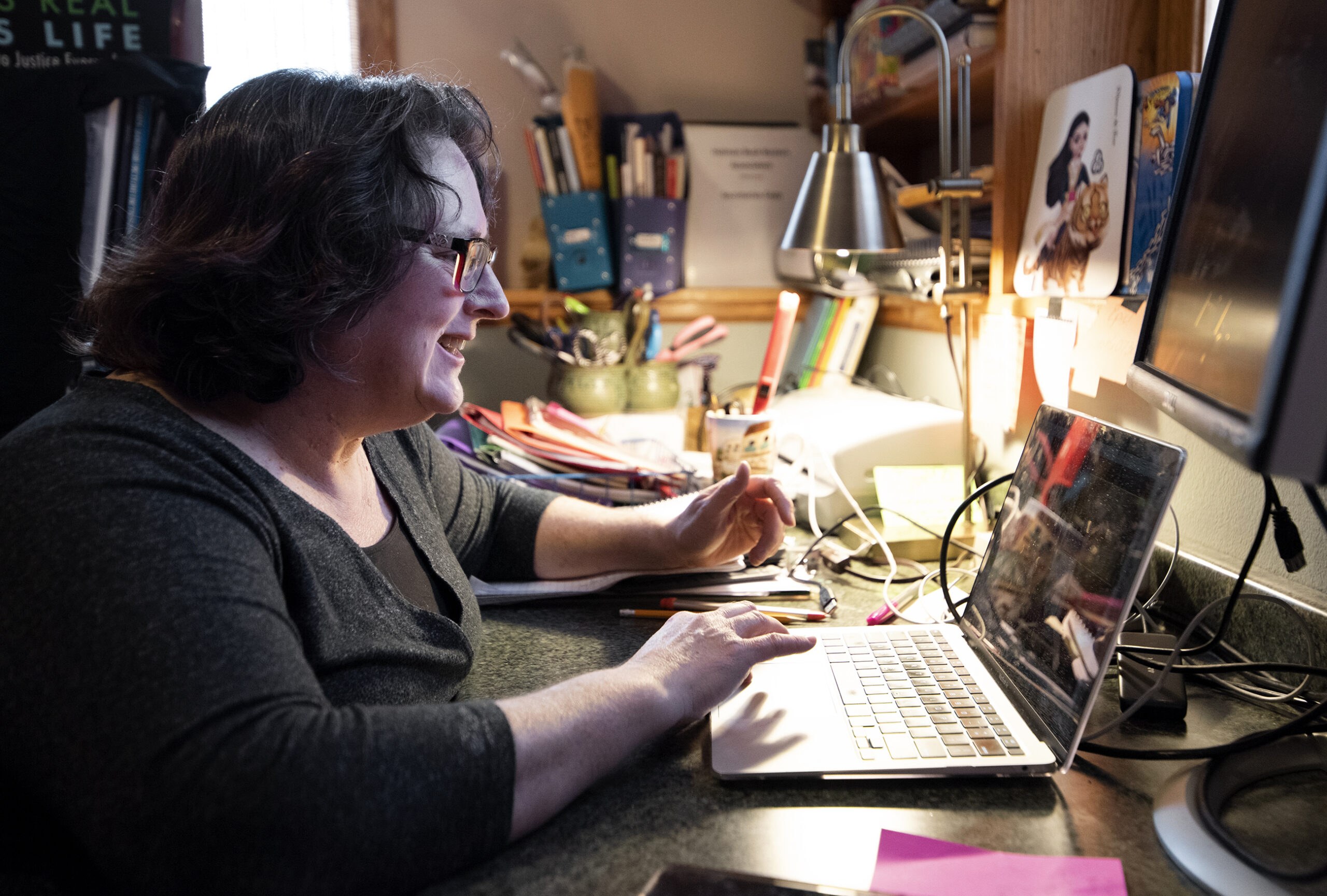
Listen to Julie Welch
The teachers, my coworkers are lovely. The kids are wonderful. COVID just makes everything harder. Because everything you do, you have to think about the social distancing, think about how you’re going to keep everyone safe, think about the reporting. An unbelievable amount of paperwork and just mind space taken up with the procedural stuff that has nothing to do with getting kids excited about learning.
I just turned 55. I was not planning to retire until at least 57, but I can’t do it anymore.
I dearly love the public education system, but it is so, so broken right now. It was on its way to breaking before, and the pandemic has just really ripped off the veil.
This has really solidified for my own personal well-being and mental health, I can’t do it anymore. And so that was really hard because my identity is teaching. When I meet people, the first thing I talk about is being a teacher, even over being a mom and a wife and a person.
So many wonderful professional friends have left — and not just to retire. I know at least four women that were in their 30s and 40s that left and got other jobs because it was just too much. Teachers are asked to do too much, and we’re criticized for what we do do. We’re asked to defend everything we’re teaching. ‘Teach them about life, but don’t get too political.’ ‘Teach them about science, but don’t get too political.’
We just feel like we can’t win.
‘I don’t know how I’m going to do this’
Marita Stollenwerk, 46, Brookfield
Stollenwerk is a mother of three children — a fifth grader and two fourth graders. During the pandemic, she juggled career and family, forcing her to make tough decisions as both a mom and a professional.
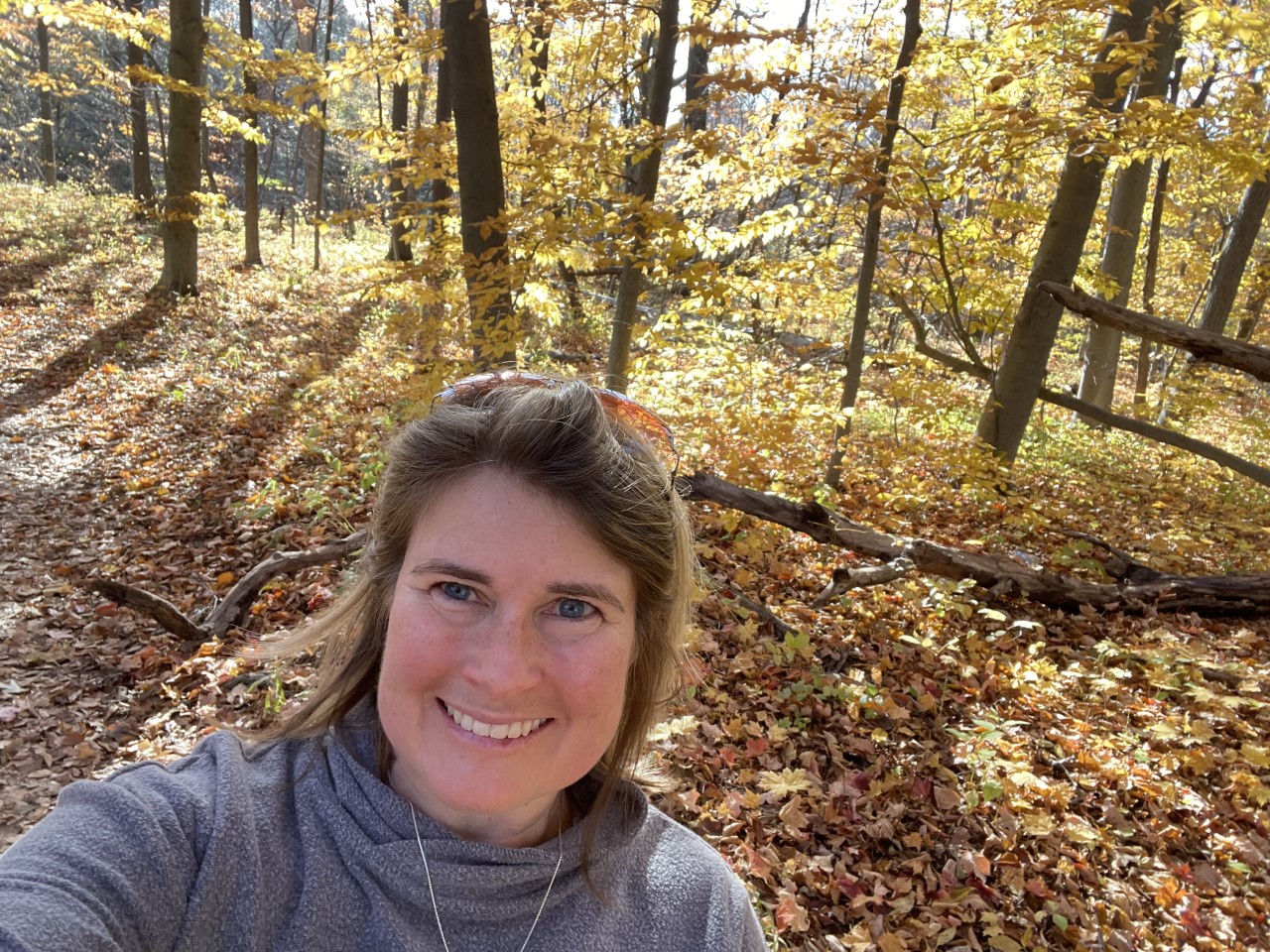
Listen to Marita Stollenwerk
During the pandemic, I was a consultant for a national firm. And when I heard that we were going to lockdown, I went to go talk to my manager and I cried. I said, “I don’t know how I’m going to do this and have the kids at home.”
I remember I was rehearsing to give a presentation with my colleagues and my daughter sat behind me and screamed because she needed my help, she wanted my help before she could submit an assignment. And I couldn’t help her because I was busy.
Even though I’m in front of the computer for an hour, I’m getting maybe a half hour’s worth of work in, and because kids are interrupting me with their IT challenges. You know, I’m trying to answer questions and getting texts from teachers.
So, in December of 2020, I decided that I would apply for another opportunity. And I felt very conflicted about leaving the position that I was in. I had worked really hard to be at that position, but I felt like I was failing in so many ways.
It was a little bit of a pay cut, but it is more manageable in terms of me being able to be engaged with my family.
‘It was a really tough time to operate a business’
Omar Shaikh, 49, Milwaukee
Shaikh is the co-owner of Carnevor Steakhouse in downtown Milwaukee. As a fine-dining restaurant, it struggled to make a go of curbside pickup, but worked hard to support staff throughout the pandemic. Now, the omicron variant is putting a damper on the success they have had since reopening in summer 2020.
Listen to Omar Shaikh
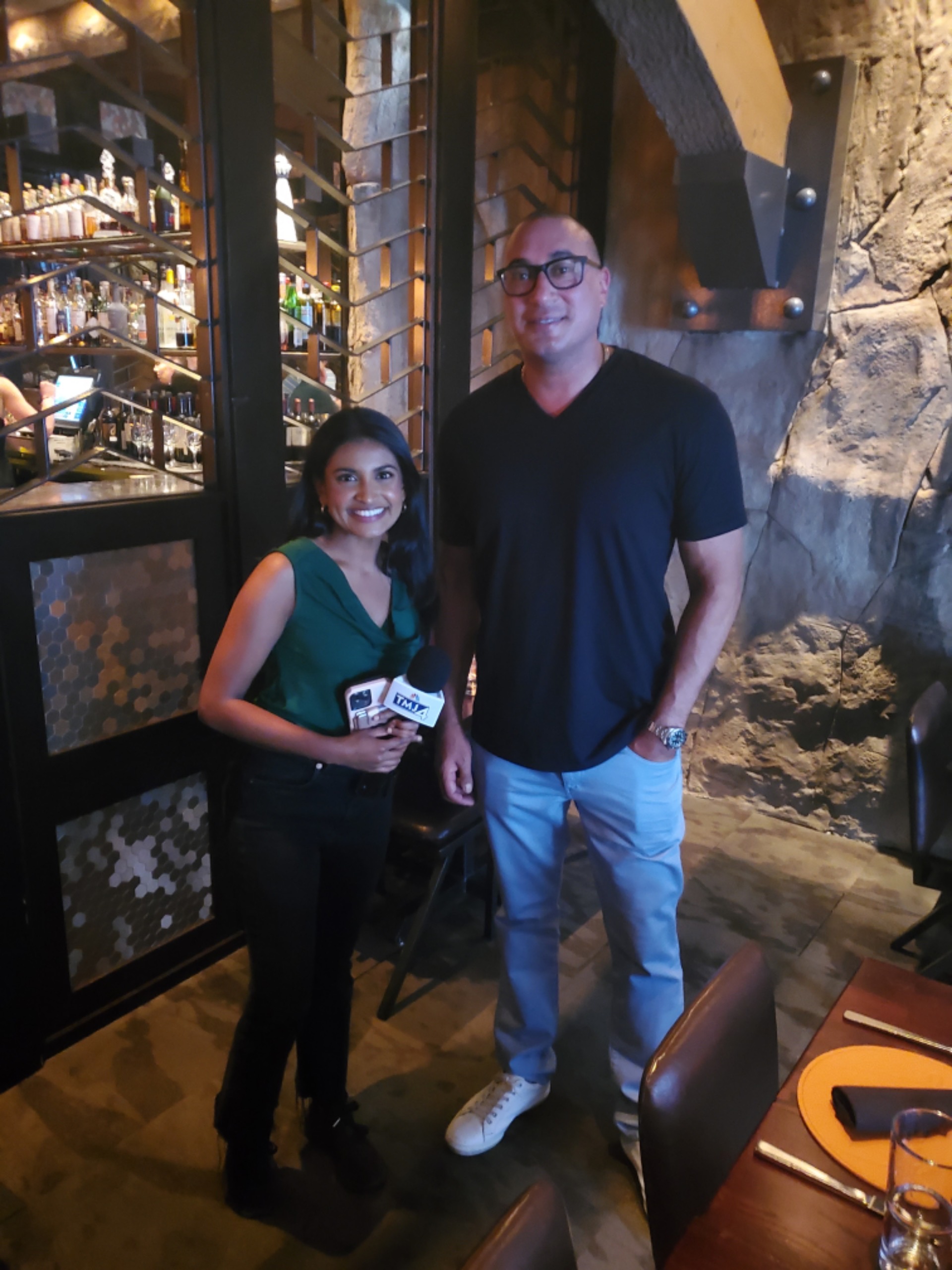
It was tough. It was a really tough time to operate a business in a pandemic. We shut down and did as much as we could for our staff, trying to make them family meals and things for them to take home.
We were able to be a part of a large group of operators working with Milwaukee Health Department to help establish a COVID criteria to keep staff and customers safe. As a lot more people became vaccinated, things started to open up and business got really strong last year.
But right now, it’s very common for a worker to catch omicron and spread it to other members. Before you know it, half your staff is down and you have to close your restaurant.
We’re seeing more cancellations than normal because a lot of times they’ll call and say, “Ugh. One of the members of the reservation got COVID,” so we’re certainly seeing a dip in business because of that.
The uncertainty and trying to do your best and operate in a fluid environment was not easy. But we certainly innovated. I think that we got a lot smarter because of it. Hopefully we’re here at the end of it. Never want to have to do it again.
‘I started not going out’
Sheryl Lamoureux, 64, Elkhorn
When the pandemic began in early 2020, Lamoureux experienced a recurrence of agoraphobia, which she had been treated for in the past.
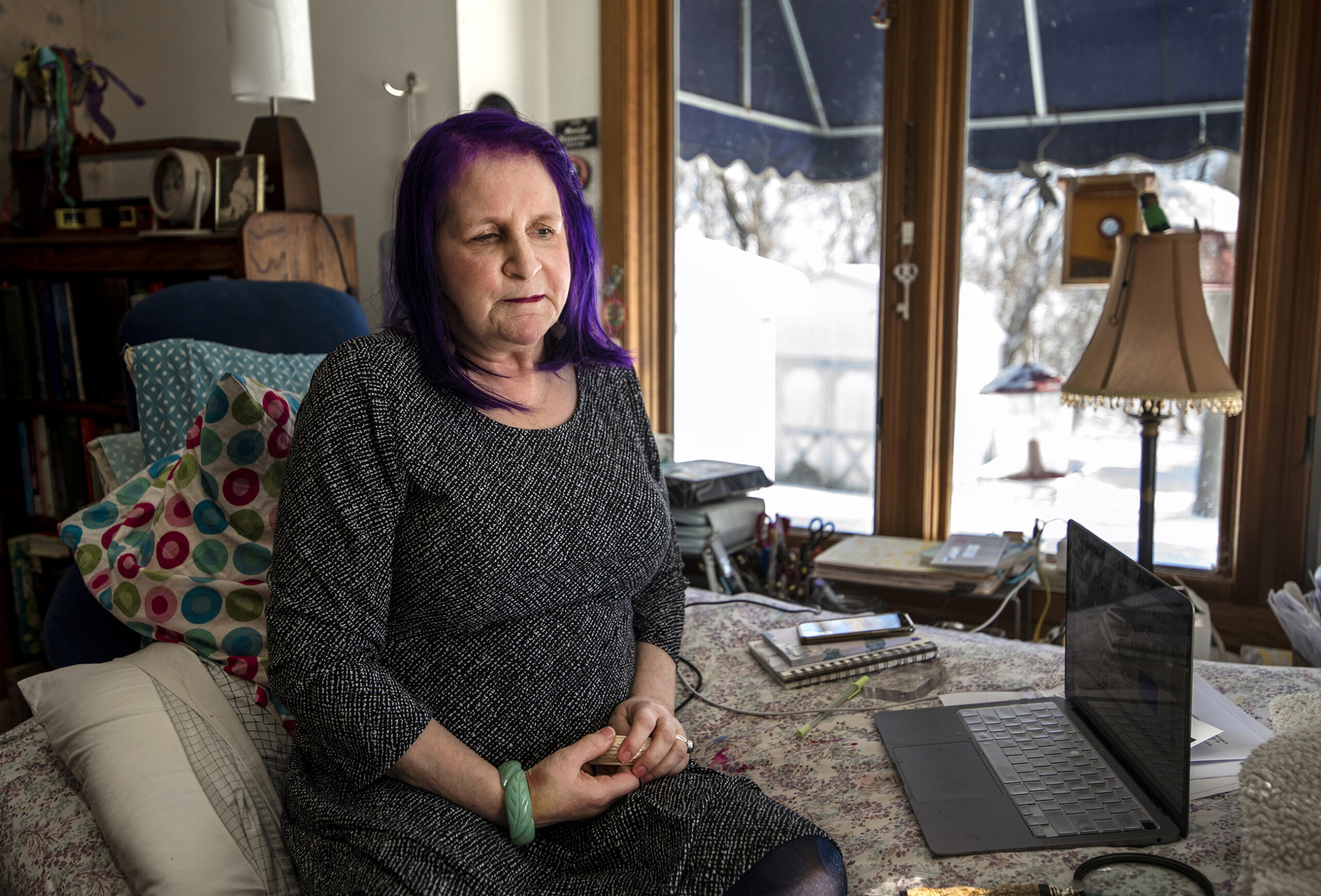
Listen to Sheryl Lamoureux
When I was about 19, I started to suffer from agoraphobia, and it came on pretty quickly. I was afraid to go out of the house, then it was kind of dormant for 40 years.
What happened when the pandemic started was like everyone else, I mean, I started not going out. I didn’t right away realize what was happening. But, you know, it kind of dawned on me that I was regressing back into that agoraphobia, and it’s been really difficult to go out.
I’m physically disabled as well, and so are my two kids, so we have home health care workers that do things like shopping and taking us to the doctor. So I didn’t actually have to go out, and I could find a way to make excuses and have other people go out for me.
And then, I finally realized what was going on. I would occasionally go to the grocery store and find myself in a full-blown anxiety attack and have to run out the store.
This is one of the things that I’m doing is just being kind of public about it instead of being isolated and, you know, keeping it a secret and, you know, I figure once it’s out there, I can ask for help.
This week, WPR and WHYsconsin are bringing you stories of the way the pandemic has affected us. They include people who have lost family members, those who’ve lost jobs or changed careers, and patients and health care workers facing overburdened hospitals. For more stories on COVID-19, visit wpr.org/COVID.
